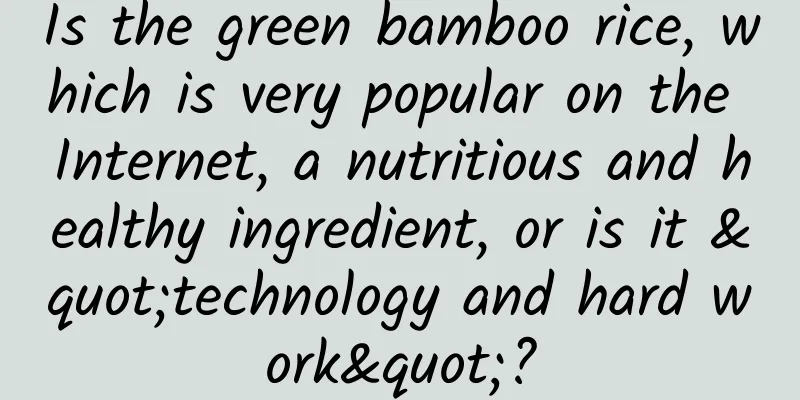What is the cause of joint pain in hands and feet after childbirth?

|
Having a baby is the happiest thing for women. After all, all the efforts over such a long time have not been wasted. As long as the baby is healthy, you will be very relieved. Although the child was born safely, the mother still has to face many practical problems, such as how to breastfeed and what methods to use to help her body return to normal. So, what is the cause of joint pain in hands and feet after childbirth? Causes of postpartum finger joint pain Postpartum finger joint pain is a type of postpartum joint pain. The main cause of the disease is the endocrine changes in the mother's body after delivery, which causes the strength and elasticity of the hand muscles and tendons to decrease to varying degrees, and the tension of the joint capsule and ligaments near the joints to weaken, thereby leading to joint relaxation and weakened function. This is the underlying cause of joint pain in the hands and feet for new mothers. (1) Nerve compression. During pregnancy, there is an overall increase in the amount of water circulating in the body. Therefore, the ligaments in the wrist and other parts become edematous, compressing the nerve channel that controls the fingers, the median nerve, causing numbness and pain, which causes carpal tunnel syndrome. (2) Vitamin B12 deficiency. Lack of this vitamin can cause peripheral nerve disorders and lead to numbness and pain in the joints. (3) If a mother does housework too early or too much after giving birth, or holds the baby for too long, or is exposed to cold water, it will overload the joints, tendons and ligaments, causing pain in the wrists and finger joints, and the most common "mom's wrist", which is clinically also known as "narrowing tendon bursitis of the wrist." The symptoms are: swelling and pain at the base of the mother's thumb, which makes it difficult to move the thumb or wrist; grasping, gripping, twisting, pinching and other actions will cause or aggravate wrist pain, and in severe cases it will affect sleep; the pain is sometimes like neuralgia, which will spread up to the arm and down to the end of the thumb. (4) During the confinement period, postpartum mothers have less activity and even seldom get out of bed to walk. This will cause the fat pad in the heel to degenerate due to disuse and become weak. Its role in supporting body weight and cushioning vibrations during exercise is greatly weakened. (5) Traditional Chinese medicine believes that postpartum joint pain is related to postpartum blood deficiency, blood stasis, or retention of wind, cold and dampness. If blood is deficient, the limbs, tendons, veins and joints will not be nourished; if blood is stagnant, the circulation of qi and blood will be blocked; if wind, cold and dampness invade the body and stay between the skin, meridians and joints, blocking the circulation of qi and blood, all of which can cause postpartum joint pain. Therefore, the reason why postpartum mothers suffer from postpartum finger joint pain is also closely related to the above 5 points. During the confinement period, mothers should rest well, reduce labor and contact with cold water, and avoid postpartum finger joint pain. |
<<: Why does breast pain occur after 10 days of menstruation?
>>: The fastest way to induce menstruation without taking medicine
Recommend
How much do you know about angina pectoris?
1. Concept: Angina pectoris is a clinical syndrom...
Is there any odor down there in the early stages of cervical cancer?
Gynecological diseases are quite harmful to women...
What to do if vaginal discharge decreases?
Women are delicate flowers that need careful care...
The most gloomy and terrifying place in the hospital, women should never go there in their lifetime
There is a place in the hospital that I always fe...
3.4 million new strokes occur each year. Why is stroke so dangerous? How to prevent another stroke
Introduction Stroke is a very common disease in m...
What are the symptoms of chest distension and lower abdominal pain?
Breast swelling and lower abdominal pain are symp...
What can’t you eat if you have uterine fibroids? Don't touch these foods!
After a woman suffers from uterine fibroids, she ...
Dietary Guidelines for Chinese Residents 2022 | Dietary Guidelines for Vegetarians
Vegetarians refer to those who do not eat animal ...
What to eat during breastfeeding
Mothers who are breastfeeding must strengthen the...
What is the cause of the small bumps around the nipple?
There are small bumps around the nipples, which m...
Why does the areola become larger and darker?
The beauty of nipples has a great influence on th...
I feel pain in my vagina.
Women should pay close attention to the health of...
Why is my period less and brown?
Menstruation is a physiological phenomenon unique...
How many months of pregnancy is normal?
Generally speaking, ordinary mothers give birth t...
What kind of vinegar should be used for smashing cucumbers? Can cucumbers be kept fresh in the refrigerator?
Cucumber contains vitamin C, B vitamins and many ...









